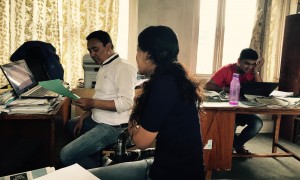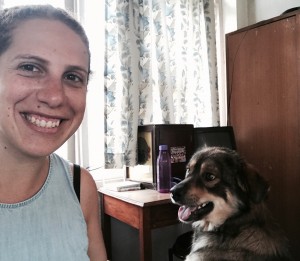I’ve been in Nepal for over a month now. I’m half way of this amazing experience…I cannot believe it! Time flies when you are doing something you love and you are committed to.
This week I did a lot of office work, since most of the schools are closed for holidays. That means that we were not able to interview any kid, teacher or parent as most of the interviews are usually held in the school premises. But it gave me time to reflect on what I have accomplished so far and what yet needs to be done.
One of the main things on my work plan for this summer is to support CONCERN in their efforts to securing funding to continue with their project. And that is what this blog post is about.
The NGO world is, to say the least, complicated. And this is particularly true in a country like Nepal, where the number of NGOs is growing rapidly (particularly after the 2015 earthquake). As of 2017, there were approximately 15,000 NGOs operating in Nepal (although less than half of them are recognized by the Government), a country of not even 30 million people. Some people call the NGO world a “parallel state”, with organizations working in different areas like health, education and agriculture.
Having so many NGOs adds pressure to an industry that relies on donations to survive. On the one side, the outstanding number of NGOs means that there is a lot of competition for the limited funds. On the other side, it means that donors most of the time have a hard time distinguishing “good” NGOs – meaning real, established ones which are transparent and accountable for their actions – from “bad” ones.
CONCERN has been able to navigate this complicated scheme on its more than 20 years working in Nepal. CONCERN has been established in 1994, and has maintained a legal NGO status with the Nepali Social Welfare Council since then. CONCERN has also had as partners recognized international organizations like the International Labour Organization, Unicef and Save the Children.
But something that always helped CONCERN to keep going is the support of the local and international community. Regular people like you and me, who want to help fight the problem of child labor and many times don’t know exactly how. People who are committed to the cause of children’s rights, and find in CONCERN a partner to take care of advocating for those children whose voice is not being heard.
As I said in my last blog post, there are always two sides of every story. The fact that children work in Nepal has to do with problems that are beyond the scope of the activities and advocacy of one particular NGO. The long-term solution involves different actors trying to promote income-generating activities for low-income families so that they don’t need children to work in order to meet their basic needs. However, there are still things we can do in the short-term, to help those kids that are working in hazardous conditions and are out of school TODAY. Supporting NGOs like CONCERN is a way to help mitigate the problem of child labor.
CONCERN knows their program cannot solve the overall issue of child labor in Nepal. But they are committed to help kids living in brick factories today to have hope and a better future than those of their parents. CONCERN is aware that education access is the way to equalize opportunities, and the way to allow upward mobility in a society where most of the times your life is determined by the family you are born into. Supporting working children during the academic year so they can attend school is the way CONCERN is helping. And you can be part of that!
We need your help. Small donations are part of the way to keep this program running. We have started a campaign in Global Giving where we are seeking funds to guarantee a year of education and labor free for 50 vulnerable children. The children I’ve been visiting so far and whose stories I’ve been posting about. $140 is enough to cover the education expenses of one child for a year – but every dollar counts towards the final objective. On July 12 Global Giving will match funds by 50%…so mark your calendars!
This is the way you can be part of CONCERN and make sure these children can have a better future. We know we can count on you!
Posted By Cynthia Boruchowicz (Nepal)
Posted Jul 9th, 2017




8 Comments
Scott Zeman
July 11, 2017
Hi Cynthia, this is amazing, transformative, work you are doing! Keep up the great work!